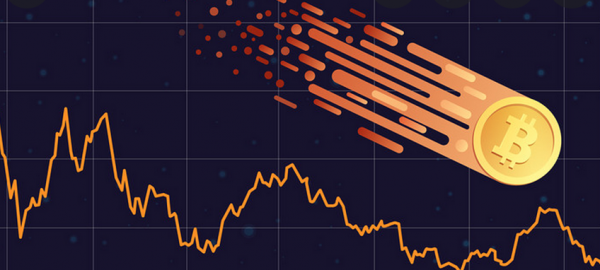Bitcoin Set for Worst Quarter in Over a Decade
It's been a rough quarter for Bitcoin and an even rougher last couple of weeks. Q2 of 2022 will turn out to be the worst quarter in more than ten years for the world's largest digital currency.
Just when we thought we had hit the bottom, Bitcoin fell some more on Thursday to just below $19,000 and down as much as 6%. Altcoins like Avalanche and Polygon lost around 10% of their overall value.
It's not all bad news.
Fundstrat technical strategist Mark Newton pointed to Bitcoin's success over the last 12 years at making cyclical lows every 90 weeks.
“Lows should be right around the corner according to this cycle composite, and one should be on alert in the month of July, looking to buy weakness for a healthy rebound, just as sentiment seems to be reaching a bearish tipping point.”
And the Bitcoin gambling sector continues to flourish as more and more people learn and feel comfortable betting with Bitcoin at online sportsbooks and casinos.
Ensuring Transparency and Authenticity on Chain
With the BSV blockchain, authenticity is guaranteed, remarks Eileen Brown for CoinGeek.
She goes on to explain that the BSV blockchain is well placed to offer full traceability and transparency while offering examples as to how certain "authentic" products are not so.
Case in point, Manuka honey is often mixed with other honey types and sold for huge costs as pure Manuka honey. Amazingly, honey is the world's third most tampered product. Traceability is still highly possible.
Authentic extra virgin olive oil is often cut with cheaper oils and sold as extra virgin olive oil while Bluefin Tuna is one of the most expensive fish in the world. Why would you not want to make absolute sure all of the stages from catching the fish itself, through its journey to the market, on to an intermediary dealer, and on into your hands were validated and authentic.
She writes of BSV:
With unalterable records placed on-chain, the journey from the farm to your fork is traceable step by step. Its immutable ledger ensures that accurate, unmodifiable record-keeping can guarantee the product is authentic at every stage of its journey. Whether it is a prize lobster caught in Australia and destined for a wedding banquet in Shanghai, or a traceable piece of plastic that can be monitored from production through the consumer to recycling, everything is potentially traceable.
The blockchain records cannot be modified as the data stored within a block is authenticated with a time-stamped hash. If there is an attempt to modify any data, the time-stamped hash will update, showing the changes that have been made to the block. Therefore, there is a complete record of entries on-chain that can demonstrate that the data has not been altered or deleted.
Blockchain in Gambling
When recently asked if a blockchain casino differs from standard gambling platforms in terms of development? Yury Filipchanka, Managing Director of Slotegrator, stated that there were no formal differences.
That being said, payment solutions do have a vital impact when it comes to blockchain in gambling.
“The only real difference is the payment solution. Crypto casinos must support deposits and withdrawals in cryptocurrencies such as Bitcoin, Ethereum, etc. Some casinos base their platform entirely on blockchain, and offer only blockchain games, but technically, any casino that takes payments from a crypto wallet counts as a crypto-casino,” commented Filipchanka.
While there are Bitcoin-only casinos and sportsbooks, ideally more and more operators believe the best approach to be an online casino that supports both fiat and cryptocurrencies as this provides the opportunity to reach a wider audience.
Moneygrator serves as a perfect example as its solution supports processing of multicurrency payments and bank cards (VISA, MasterCard, American Express, etc.). A player can use electronic money, credit cards, vouchers, mobile money, and cryptocurrencies (Bitcoin, Ethereum, Litecoin, Dogecoin, Monero, and others).
- Aaron Goldstein, Gambling911.com















